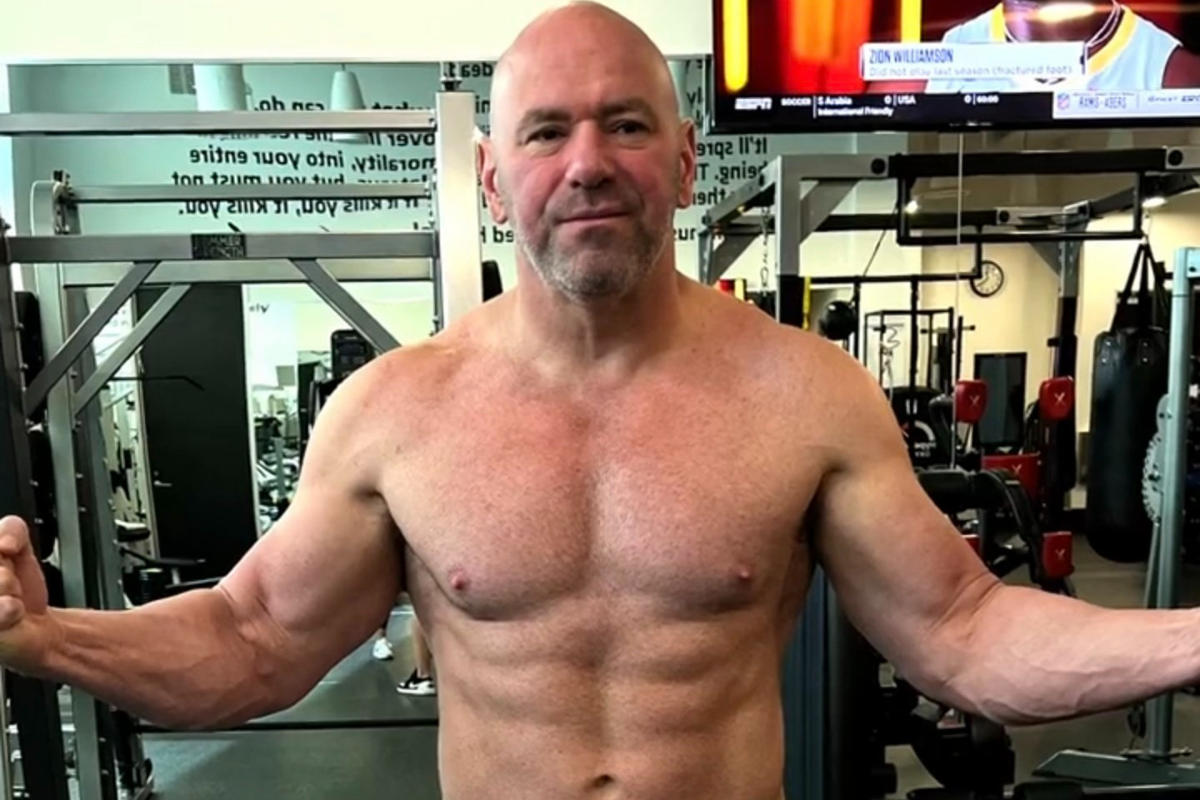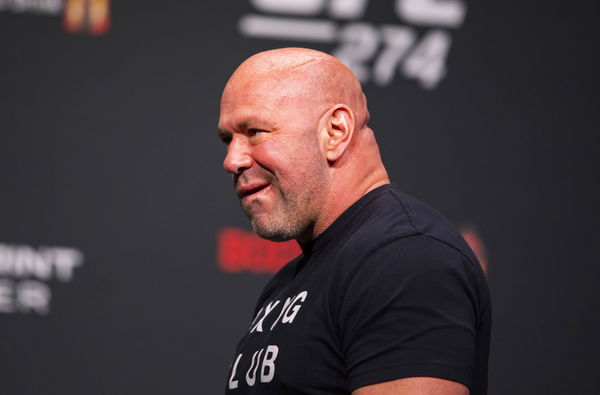

Dana White, the man who has propelled the UFC to global fame, has long been connected to combat sports. But was he ever a fighter himself? Despite spending years training and instructing in boxing clubs, White never competed as a professional fighter. However, his early experiences provided him with a thorough understanding of the sport’s demands, yet he ultimately decided against pursuing boxing as a career. So, join us as we look at his amateur record and why he decided to quit before going pro.
Watch What’s Trending Now!
Did Dana White ever box?
Dana White’s boxing journey began not in a professional ring, but in a restored South Boston gym. White and Golden Gloves winner Peter Welch transformed an empty room into McDonough Gym, where they trained local kids and provided boxing classes to housewives, businessmen, and regulars in the neighborhood.
“We weren’t boxercise instructors,” White once said in an interview. “We taught boxing classes, that’s what we did.” These classes, which subsequently grew into popular “boxing fitness” sessions, paved the way for the future UFC CEO’s deep involvement in the fight scene. Although White wasn’t a professional boxer, he became absorbed in the sport’s culture.
He sparred, trained others, and even held clinics every couple of weeks. His dedication was more than just a show; it revealed an honest love for fighting, inspired by his adoration for champions such as Mike Tyson. “Everybody has a friend who wants to box,” Welch recalled, “but this guy, he wasn’t that guy. He took his first beating and kept coming back.” Dana White’s amateur boxing record is reported by him to be around 13 wins and 4 losses, likely in unsanctioned smokers(informal boxing events). However, there is no official or documented record of his fights in sanctioned boxing matches.

Imago
Image credits: Imago
Despite his involvement, Dana White never transitioned into professional competition. He was afraid of the consequences after seeing how dangerous the sport could be. “The minute you think that to yourself—what if it happens to me—you’re not a real fighter,” he admitted. And that takes us to the reason why he stopped being a full-time boxer.
Why did the UFC CEO leave boxing?
His passion for fighting remained, but he chose to walk away before the bruises became permanent. The turning point came when Dana White‘s boxing career ended in the same way that many combat sports ambitions do: by realizing that the risks outweighed the rewards. He changed his focus to coaching and management, which ultimately paved the way for his future as the UFC’s CEO.
White’s decision to retire from boxing came from a moment of clarity. While working the front desk at a hotel or manning the bar at an Irish tavern in Boston, he often thought about the dangers that boxers faced. One instance that stuck with him was witnessing a fighter stumble around a heavy bag, bewildered and out of control. The sight made him think, “What if it happens to me?”
And just like that, the fear marked the end of his pursuit of professional fighting. The sport’s toll on the body, particularly the brain, became increasingly obvious over time. The UFC head honcho has openly discussed the results of his own CT scan, joking grimly, “It looks like a… Dalmatian.” With spots on his brain from his sparring sessions, White preferred to accept responsibility for his health rather than seek blame.
“I wouldn’t take back one punch,” he said, reinforcing his belief that fighters must own their decisions. Ultimately, Dana White’s decision to retire from boxing was motivated by foresight rather than fear. He understood that fighting should not come at the expense of long-term health. So, that wisdom led him toward coaching, where he could stay close to the sport without paying the full price.
White’s career as a boxing coach
After stepping away from fighting, Dana White discovered his true calling as a boxing instructor and trainer. He began at McDonough Gym in Boston, where his early efforts not only honed his own skills but also established a reputation for encouraging discipline and technique. What began as a small “boxing fitness” program quickly grew into a respected training facility where fighters and fans could polish their craft.
White’s growing reputation eventually led to a fateful meeting with his high school friend Lorenzo Fertitta at a wedding. This unexpected encounter led Lorenzo and his brother Frank Fertitta to White’s gym, where their relationship grew deeper through training sessions. The connection eventually revolutionized White’s career, as years later, the Fertitta brothers helped White acquire the UFC and transform it into a global phenomenon.
View this post on Instagram
White takes pride in his coaching experience and dismisses critics who call him a “boxercise coach.” He believes that his boxing classes were legit and set the framework for his success in fight promotion. His coaching style, which emphasized resilience and self-reliance, influenced how he raised his children, particularly his son Aidan, who is also interested in the sport. So, it surely looks like all the experience paid off, as the man who once practiced the art in a makeshift gym now sits with a net worth of over $500 million.

